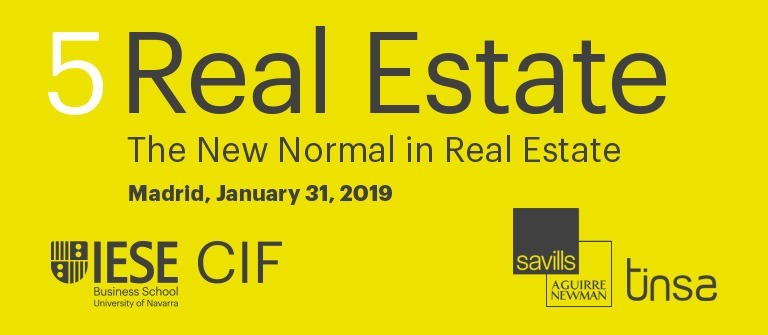
The economic crisis had a disproportionate effect on the real estate industry, but now that the recession is years behind us, it’s time to admit that the current situation has returned to a kind of normal: the new normal. Residential developers and REITS in Spain now operate with an altered approach that can be viewed as the new normal, given that these sectors are more complex and changing, and highly sensitive to other sectors and society in general. This context will involve changes in strategies and business models, greater demands on senior managers and increasingly volatile resources.
The aim of the Industry Meeting is to identify the keys in terms of business models, markets and products in this new context. Some examples include the strategies of the main investors, the future of residential development, how increased tourism and international competition are affecting cities, and new real estate uses in response to the transformation of society.
IESE Madrid
Camino del Cerro del Águila, 3
28023 Madrid
Claudia Escobar
IESE Industry Meetings
tel: +34 93 253 43 36
| 08:30-09:00 | Welcome and registration |
| 09:00-09:15 | INTRODUCTION
• Prof. José Luis Suárez, Academic Director of the Meeting, IESE Business School |
| 09:15-10:30 | THE FUTURE OF REITS
There is no denying the success of REITs in Spain or the dynamic role they have played in the industry’s recovery phase. What can we expect in the coming months? Mergers, specialization, internationalization? Is it reasonable to think that any of the companies listed on the MaB are ready to make the leap to continuous trading? How will tax changes affect REITs? • Juan José Brugera, President, Inmobiliaria Colonial Socimi, S.A. Moderator: Prof. Jorge Soley, IESE Business School |
| 10:30-11:45 | DISRUPTIVE MODELS IN THE INDUSTRY
New technologies and changes in the behavior of people and companies have generated new business models that have caused profound changes in many industries. What are these disruptive models in the real estate industry? How should the industry adapt to this revolution? • Lupina Iturriaga, Founder and Co-CEO, Fintonic Moderator: Prof. Carlos Vergara, IESE Business School |
| 11:45-12:15 | Coffee Break |
| 12:15-13:30 | CITIES/TOURISM/ACCESSIBILITY OF HOUSING
Is the constant transformation of major cities a good thing? What are the effects of the high demand for urban tourism and its impact on housing uses and traditional neighborhoods? Have major cities become independent bodies living separately from the regions where they are located? • Simón Pedro Barceló, Copresident, Barceló Group Moderator: Ignacio Martos, Tinsa |
| 13:30-15:00 | Lunch |
| 15:00-16:15 | INVESTMENT FUNDS
The Spanish banking industry continues reducing its exposure to the real estate sector and other unproductive assets. When will the situation return to normal? What will investment funds do with the portfolios of foreclosed assets and doubtful loans they are buying? What are SAREB’s plans for 2019? Will it follow Santander and BBVA’s example of returning to the project of creating a “mega-portfolio” to speed up the sale of assets? • Jaime Echegoyen, Executive Chariman, SAREB Moderadora: Susana Rodríguez, Savills Aguirre Newman |
| 16:15-17:30 | RESIDENTIAL DEVELOPMENT
This situation can be described using several different dichotomies, including ownership vs. rental; experienced buyers vs. first-time buyers; accessibility vs. higher prices (for purchase and rental); millennials vs. an aging population; stock market vs. traditional financing; industrialization vs. standard methods; digitalization vs. brick and mortar; distrust of the public and private sectors vs. collaboration; and mergers vs. traditional fragmentation. • Juan Antonio Gómez-Pintado, President, Asprima Moderator: Prof. José Luis Suárez, IESE Business School |
| 17:30 | CLOSING SESSION
• Prof. José Luis Suárez, Academic Director of the Meeting, IESE Business School |
The fees for the 5 Real Estate Industry Meeting are:
General
IESE Alumni
IESE Members and Partners
Fee includes lunch.
Payment must be made prior to program attendance.
Places are limited and registrations are processed in strict order of receipt.
2018 · Where Are We in the Real Estate Cycle
2017 · Real Estate and Society
2016 · The Renovation of the Real Estate Industry in Spain
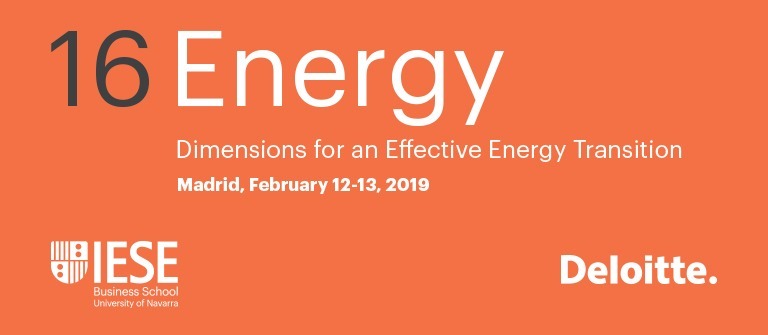
Energy and progress have been inseparable throughout the history of civilization. Progress has been possible at different times in history when quality institutions have thrived in a context of open trade in which science has shown the way to the future. This progress has been accompanied by an often-overlooked factor that has moderated or amplified these expansive waves: the availability and cost of energy.
Major economic and social turning points in the history of civilization have been marked by energy sources. It happened with the domestication of fire the harnessing of wind and water as well as the use of the use of solar energy. More recently, natural gas and nuclear fission have played their part.
Energy has therefore been a real driver of progress. And this increased progress has also involved greater energy consumption. Such economic growth tied to greater energy consumption has made it possible for millions of people to enjoy increased well-being in recent decades. At the same time, this massive use of energy has generated negative environmental and sometimes social externalities. About 80% of greenhouse gas emissions are caused by the consumption of fossil fuels. This represents approximately 80% of the total primary energy consumed by humanity. Through steady, long-term demand, the use of these fuels has altered the composition of our atmosphere and oceans.
The current energy transition toward a decarbonized society is an unprecedented challenge. Previous transitions tended to run their own course, but this one is different in that it has been forced on us and must take place very quickly because ambitious climate change mitigation goals have been set to deal with such a major challenge. In fact, it is the first transition not driven entirely by technology, resources
or the economy.
The most important factor now is the quality of the decisions we make. The current energy transition calls for the involvement of governments and regulators, private companies, investors, consumers and society as a whole. It must be approached from many different perspectives.
The transition agenda must be pushed without hindering the essential process of reducing world poverty, which has created the largest middle class in history (it has more than doubled in size since 2000 and now represents 45% of the population).
At the upcoming 16th Energy Industry Meeting, we will discuss these topics while placing special emphasis on some of the factors that will help ensure effective energy transition. We will take a close look at disruption in business models, technology and geopolitics in terms of the energy and environmental scenarios of the year 2030 and the role of all stakeholders in this global challenge.
IESE Madrid
Camino del Cerro del Águila, 3
28023 Madrid
IESE Industry Meetings
tel: +34 93 253 43 36
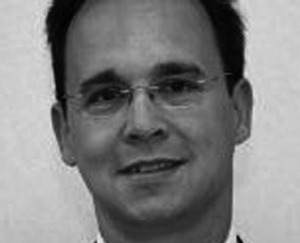
Coorganizer
| 16:30-17:30 | Welcome and registration |
| 17:30-18:15 | OPENING SESSION
• Teresa Ribera, Minister for Ecological Transition, Government of Spain |
| 18:15-19:15 | INNOVATION AND ENTREPRENEURIAL INITIATIVE IN THE ENERGY SECTOR
• Diego Pavia, CEO, InnoEnergy Speaker-Moderator: Prof. Julia Prats, IESE Business School |
| 19:15-20:15 | INNOVATION, TECHNOLOGICAL DISRUPTION AND FINANCING
• Blanca Losada, President, Fortia Energía Moderator: Carlos Milans del Bosch, Partner, Deloitte |
| 08:30-09:00 | Welcome and registration |
| 09:00-10:00 | OIL COMPANIES AS ESSENTIAL AGENTS IN THE DECARBONIZATION PROCESS: INNOVATION IN BUSINESS MODELS AND PORTFOLIO
• Luis Aires, President, BP Spain Moderator: Ana Sánchez Palacios, Partner, Deloitte |
| 10:00-11:00 | DISRUPTION IN BUSINESS MODELS AND NEW STAKEHOLDERS
• Dr. Marius Buchmann, Energy Economist, Jacobs University Bremen Moderator: Felipe Requejo, Socio, Deloitte |
| 11:00-11:30 | TRES ENCRUCIJADAS CRÍTICAS: CIERRE NUCLEAR, FISCALIDAD DEL TRANSPORTE Y DESCARBONIZACIÓN DE LA INDUSTRIA
• Prof. Pedro Linares, Professor, Comillas Pontifical University Moderator: Prof. Juan Luis López Cardenete, IESE Business School |
| 11:30-12:00 | Coffee Break |
| 12:15-12:45 | PERSPECTIVES FOR AN EFFECTIVE TRANSITION. THE VISION OF REE
• Juan Lasala, CEO, REE Moderator: Prof. Juan Luis López Cardenete, IESE Business School |
| 12:45-13:45 | ROADMAP FOR AN EFFECTIVE TRANSITION
• Carmen Becerril, President, OMEL Moderator: Prof. Juan Luis López Cardenete, IESE Business School |
| 13:45-14:30 | GEOPOLITICAL DISRUPTION
• Lara Lázaro, Senior Analyst, Real Instituto Elcano Moderator: Claudio Aranzadi, Ex Ministro de Industria y Energía |
| 14:45-16:00 | Lunch |
| 16:00-16:30 | PERSPECTIVES FOR AN EFFECTIVE TRANSITION. THE VISION OF IBERDROLA
• Ángeles Santamaría, CEO, Iberdrola España Moderator: Prof. Juan Luis López Cardenete, IESE Business School |
| 16:30-17:15 | MEDIO AMBIENTE, CIUDADES Y SOCIEDAD
• Prof. Pascual Berrone, IESE Business School Moderator: Alberto Amores, Partner, Monitor Deloitte |
| 17:15-17:30 | Break |
| 17:30-18:00 | PERSPECTIVES FOR AN EFFECTIVE TRANSITION. THE VISION OF ENDESA
• José Bogas, CEO, Endesa Moderator: Prof. Juan Luis López Cardenete, IESE Business School |
| 18:00-18:30 | PERSPECTIVES FOR AN EFFECTIVE TRANSITION. THE VISION OF NATURGY
• Manuel Fernández Álvarez, COO Gas & Power, Naturgy Moderator: Prof. Juan Luis López Cardenete, IESE Business School |
| 18:30-19:00 | PERSPECTIVES FOR AN EFFECTIVE TRANSITION. THE VISION OF REPSOL
• Antonio Brufau, President, Repsol Moderator: Prof. Juan Luis López Cardenete, IESE Business School |
| 19:00 | CLOSING |
The fees for the 16 Energy Industry Meeting are:
General
IESE Alumni
IESE Members and Partners
Fee includes lunch.
Payment must be made prior to program attendance.
Places are limited and registrations are processed in strict order of receipt.

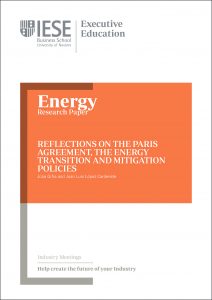
2018 · Game changers in the Global Energy System
2017 · Energy Architecture in Transition
2016 · Human Well-being, Growth and Energy Access: New Governance for a Unique Challenge
2015 · The Future of Energy: Who Calls the Shots?
2014 · Quo Vadis, Europe? Shedding Light on an Energy Policy beyond the Electrical Sector Reform
2013 · A New Energy Policy as a Global Paradigm Shift Emerges
2011 · The Impact of the Energy Policy on the Sector’s Competitiveness
2009 · A Debate on the Spanish Energy Sector
2004 · Energy Liberalization and Consolidation in Europe
2002 · A Shift Towards the Convergence of Energy Markets
2000 · Mergers and Strategic Alliances: The Creation and Conquest of the Future
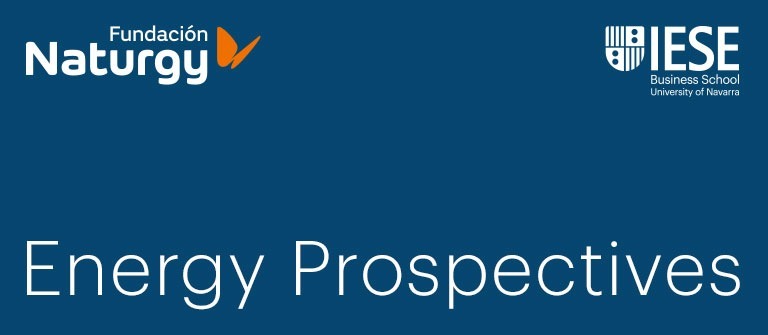
A series of top-level conversations on the economic, technical and scientific conditions anticipated in the future of the energy industry.
Energy Prospectives will bring together world figures recognized for their experience, vision and knowledge of the energy industry so they can share their expertise with business owners, regulators, senior managers and academics.
IESE Madrid
Camino del Cerro del Águila, 3
28023 Madrid
This event is by invitation only
Claudia Escobar
IESE Industry Meetings
tel: +34 93 253 43 36
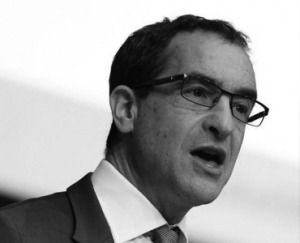
Speaker
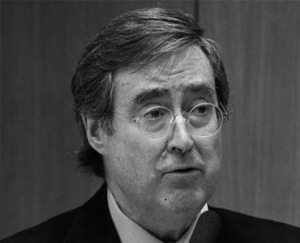
Speaker
| 09:15-09:30 | OPENING
• Prof. José Luis Suárez, Director, IESE Business School Madrid |
| 09:30-10:15 | GLOBAL TRENDS IN CLEAN ENERGY AND TRANSPORTATION
• Michael Leibreich |
| 10:15-11:00 | DILEMMAS, UNCERTAINTIES AND OPPORTUNITIES OF THE ENERGY TRANSITION
• Claudio Aranzadi |
| 11:00-11:45 | COLOQUIUM
Moderator: Prof. Xavier Vives, Professor of Economics and Finance, IESE |
| 11:45-12:00 | CLOSING
• Rafael Villaseca, President, Naturgy Foundation |
| 12:00-12:30 | Networking cóctel |
| 12:30 | End session |
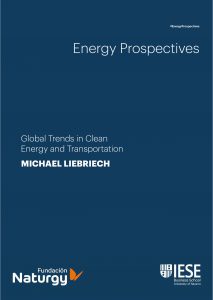
CLAUDIO ARANZADI
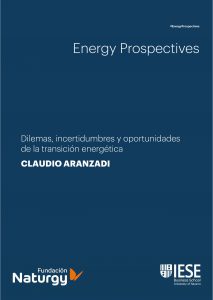
The Naturgy Foundation and IESE have launched Energy Prospectives, a series of top-level conversations on the economic, technical and scientific conditions anticipated in the future of the energy industry.
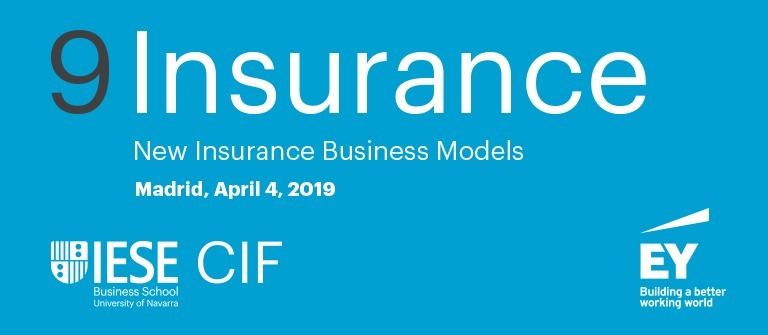
The insurance industry is facing a set of challenges and opportunities that will have an impact on its business model.
These challenges and opportunities primarily involve technological developments (digitalization and robotization), new customer demands and expectations, the competitive environment (the role of insurtechs), the economic climate and regulatory changes (mainly IFRS 17).
All these topics will be analyzed in detail at the 9 Insurance Industry Meeting by renowned speakers in the industry from the perspective of their impact on the insurance business model.
IESE Madrid
Camino del Cerro del Águila, 3
28023 Madrid
Claudia Escobar
IESE Industry Meetings
tel: +34 93 253 43 36
| 08:15-08:45 | Registration |
| 08:45-09:00 | INTRODUCTION
• Prof. Juan José Toribio, President, IESE-CIF (Center for International Finance) |
| 09:00-09:45 | DEMOGRAPHICS’ IMPACT ON INSURANCE (REGULATION, BUSINESS)
• José Antonio Fernández de Pinto, Deputy Director Insurance Entities Supervision, Directorate General of Insurance and Pensions Funds, Ministry of Economy and Business Moderator: Prof. Jorge Soley, IESE Business School |
| 09:45-10:30 | THE INDIVIDUAL’S ROLE IN THE DIGITALIZED INSURANCE COMPANY
• Veit Stutz, Head of Global Transformation Division, Allianz Group Moderator: Prof. Miguel Duro, IESE Business School |
| 10:30-11:30 | APPLYING TECHNOLOGY TO IMPROVE EFFICIENCY IN THE INSURANCE INDUSTRY
• Vicente Cancio, CEO, Zurich Group in Spain Moderator: Moderator: Maribel de la Vega, Partner, EY Spain |
| 11:30-12:00 | Coffee Break |
| 12:00-13:00 | LEVEL OF COVER AND CUSTOMER SATISFACTION WITH INSURANCE
• Ignacio Eyries, CEO, Caserr Moderator: Prof. Joan Fontrodona, IESE Business School |
| 13:00-13:45 | BROKERS IN THE NEW DIGITAL AGE
• Elena Jiménez de Andrade, President, National Council of Spanish Insurance Intermediaries Moderador: Prof. Javier Santomá, IESE Business School |
| 13:45-14:45 | OPERATIONAL CHALLENGES OF THE NEW REGULATION
• José Manuel Domínguez, Director de Control y Administración, Grupo Pelayo Moderator: Ana Belén Hernández, Partner, EY Spain |
| 14:45-16:00 | Lunch |
| 16:00-17:00 | INSURTECH: A NEW APPROACH TO INSURANCE
• Ion Cuervas-Mons, Founder and former CEO, Muno Moderator: Manuel Martínez Pedraza, Partner, EY Spain |
| 17:00-17:30 | THE ECONOMIC AND FINANCIAL CONTEXT
• Prof. Juan José Toribio, IESE Business School |
| 17:30 | CONCLUSIONS OF THE MEETING
• Prof. Jorge Soley, IESE Business School |
The fees for the 9 Insurance Industry Meeting are:
General
IESE Alumni
IESE Members and Partners
Fee includes lunch.
Payment must be made prior to program attendance.
Places are limited and registrations are processed in strict order of receipt
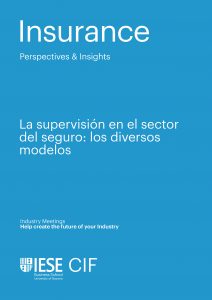
2018 · Insurance and New Risk
2017 · Rethinking strategies in the Insurance Business
2016 · Insurance Companies: Strategies for the Future
2015 · Insurance Companies in a Global Context: Challenges and Opportunities
2014 · A new way to Insure?
2013 · Key times: an industry in transformation
2012 · El futuro de la industria del seguro en España
2011 · Oportunidades y riesgos después de Solvencia II
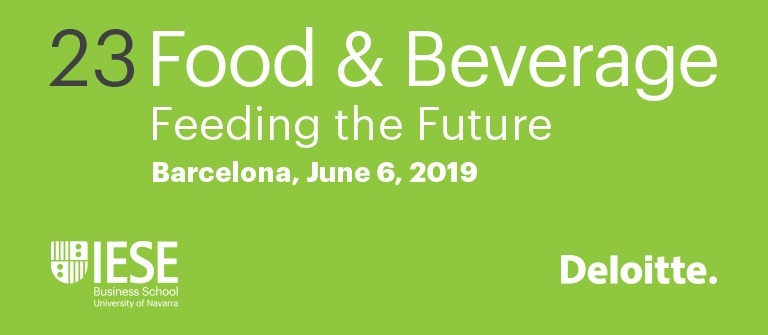
Our next Food and Beverage Industry Meeting aims to tackle industry challenges and trends in terms of their implications and the changes they generate. The food transition involves adapting not only to a new context, but also to a process that puts more pressure on decision-making in companies by challenging them to change and come up with original and imaginative strategic responses.
The agenda of the 23rd annual Industry Meeting contains several different topics for discussion. They include the transition of the global food system in the current economic and geopolitical context and in the next ten years.
We’ll also discuss food and health, the importance of nutrition and how the concept of nutrition has become inseparable from food. The interdependence of these two disciplines calls for new frameworks for collaboration, research and knowledge.
Another point for discussion will be the future of international trade and how the new reality in terms of trade agreements and tariffs presents enormous challenges for companies involved in internationalization processes. One session will therefore be set aside to focus on strategy, alliances and collaboration. We’ll speak with leading CEOs to understand their current agendas and especially what they expect their agendas to look like in the immediate future and in five years and ten years. We’ll explore how they expect the industry to evolve and progress, and how they lead their companies through this transition in terms of corporate responsibility. This is where the concept of sustainability becomes more relevant.
Finally, the annual Industry Meeting could not be held without understanding that consumers are immersed in a global process of urbanization and digitalization. Lifestyles and trends in consumption indicate that consumers are more informed, more digitized and pay greater attention to what they buy in terms of the product (natural, healthy ingredients) and the values they expect from distribution and the industry (ethical business models, environmentally friendly practices and animal welfare). Another clear trend highlights the importance of the shopping experience with the actual product in the store (concepts relating to convenience, little time, enjoying the shopping experience and the synergies created in physical spaces that combine personal leisure and local shopping opportunities, and where people work, have lunch and hold informal meetings). These experiences are often related to or identified with brands and the values they represent.
The 23rd Food and Beverage Industry Meeting, organized by IESE Business School and Deloitte, will take place on June 6, 2019 on IESE Business School’s Barcelona campus. Relevant figures from the business world, experts, academics, policy makers and regulators from Spain and the international community will provide a coherent analysis of the topics shaping the agenda in the food and beverage industry.
IESE Barcelona
Arnús i Garí, 3-7
08034 Barcelona
IESE Industry Meetings
tel: +34 93 253 43 36
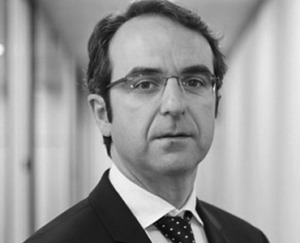
Collaborating Director
| 08:30-09:00 | WELCOME AND REGISTRATION |
| 09:00-09:30 | OPENING SESSION AND PRESENTATION OF THE VADEMECUM
• Prof. Adrián Caldart, Academic Director of the Meeting, IESE Business School |
| 09:30-10:30 | HAS ECONOMIC GROWTH REACHED ITS LIMIT? REFORMS AND POLICIES FOR AN UNCERTAIN WORLD CONTEXT
The International Monetary Fund’s most recent estimates point to a slowdown and more moderate growth prospects for the coming year. The uncertainties associated with Brexit, the United States-China trade war and the behavior of emerging countries will provide the world economic and geopolitical backdrop for this debate, as well as the keys to understanding the current and future situation of the Spanish economy in the European and global context. • Prof. Javier Díaz Giménez, IESE Business School Moderator: Prof. Antonio Argandoña, IESE Business School |
| 10:30-11:15 | NUTRITION AND SUSTAINABILITY
The food and beverage industry has a fundamental role to play in challenges as important as demographic growth, technological innovation, urbanization and the unprecedented social change of the energy transition. • Shay Eliaz, Principal, Monitor Deloitte Moderator: Prof. J. Alfredo Martínez, Professor of Food Sciences and Physiology, University of Navarra and Food Director of the Precision Nutrition of IMDEA |
| 11:15-11:45 | Pausa-Café |
| 12:00-12:45 | THE INDUSTRY IN THE EUROPEAN UNION. PRIORITIES, POLICIES AND REGULATIONS
Food safety, waste, sustainability, job creation, nutrition and health are some of the main topics and priorities of the food and beverage industry. In the European Union, this industry represents more than four million people and 289,000 companies, 90% of which are small and medium-sized businesses. EU priorities and strategies will have an impact on the policies and regulations of the next ten years. This session will provide an opportunity to discuss these issues. Moderated / Presented by: |
| 12:45-14:00 | ENTREPRENEURIAL INITIATIVE AND FINANCING OF INNOVATION
The food and beverage industry has historically been characterized by its proximity to consumers, response to their needs and push for continuous process improvement. These drivers have made the industry more innovative and given it greater capacity for change and transformation. • Yolanda Cerdà, FMCG Innovation Observatory Manager, Institut Cerdà Moderador: Prof. Eduard Calvo, IESE Business School |
| 14:00-15:15 | Lunch /em> |
| 15:15-16:15 | AGRIBUSINESS. TRENDS, INNOVATION AND OPPORTUNITIES
Focusing on agriculture is a basic way of highlighting the entire value chain and understanding the industry and its capacity for transformation, as well as distribution based on proximity to consumers. The primary sector provides fertile ground for innovation and a wealth of opportunities associated with digitalization. Panel members will discuss the challenges and opportunities of agriculture and its importance in the value chain and the industry as a whole. • Fernando Clúa, Investment Director, Miura Private Equity Moderator: Prof. Adrián Caldart, IESE Business School |
| 16:15-17:00 | LIFESTYLE, BRANDS AND CONSUMER
Understanding consumers in a global era of urban living and digitalization has become a more important priority for companies. Lifestyles and trends in consumption indicate that consumers are more informed, more digitally savvy and pay greater attention to what they buy in terms of the product (natural, healthy ingredients) and the values they expect from distribution and the industry (ethical business models, environmentally friendly practices and animal welfare). Another clear trend highlights the importance of the shopping experience with the actual product in the store (concepts relating to convenience, limited time, enjoying the shopping experience and the synergies created in physical spaces that combine personal leisure and local shopping opportunities, and where people work, have lunch and hold informal meetings). These experiences are often related to or identified with brands and the values they represent. The session will offer a chance to discuss how to reach, transmit and earn the trust of consumers based on authenticity and brand management. • Telmo Pagalday Vergara, Content Manager & Digital Marketing, Pernod Ricard Moderated / Presented by: Carlos Holemans, Chief Creative Officer, Deloitte Digital |
| 17:00-17:15 | Break |
| 17:15-18:30 | RETHINKING PACKAGING AND THE PLASTICS INDUSTRY
New regulations, concern for the environment and consumers’ growing awareness have made the discussion of packaging and recycling a key item on the food and beverages industry agenda. Panel members and the main stakeholders will discuss this global challenge that calls for everyone’s involvement. • Cinta Bosch, Head of Sustainability, AECOC Moderator: Ignacio González Hernández, CEO, Grupo Nueva Pescanova and President, Ecoembes |
| 18:30-18.45 | CLOSING SESSION |
The fees for the 23 Food and Beverage Industry Meeting are:
General
IESE Alumni
IESE Members and Partners
Fee includes lunch.
Payment must be made prior to program attendance.
Places are limited and registrations are processed in strict order of receipt.
2018 · State of Play and Future Scenarios
2017 · Sustainable Growth Strategies: Challenges and Opportunities
2016 · A Global, Creative Look at Growth, New Markets and Change
2015 · The Road to 2025 and Beyond
2014 · The Four I-Engines of the Industry
2013 · Selling Across Continents
2012 · Growth in the recession. Examples for industry and retail
2011 · In search of added value: how to get consumers, margins and competitiveness back
2010 · Food wars: counterattack brands. Rebuilding the industry’s future
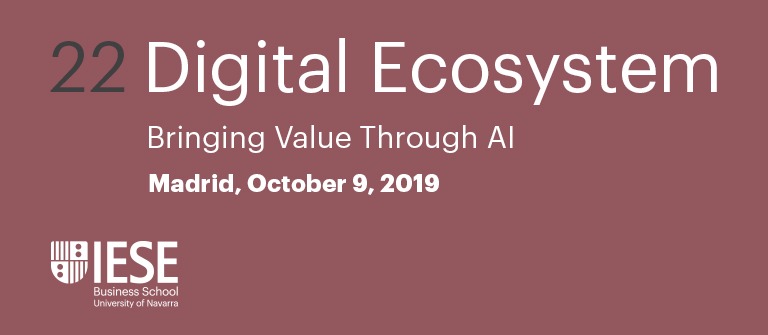
The number of persistent connections to the Internet has been consistently increasing for the last 25 years. We use the term “persistent” to convey the idea that these connections are always on and capable of facilitating unconstrained interactions and information transfer. As a consequence the digital density, defined as the percentage of connected data per unit of activity (organization, sector, city, etc.), is growing exponentially. The increase of digital density has given rise to new business models in many sectors; a phenomenon normally referred as digital transformation.
As Artificial Intelligence (AI) enters into action, digital density growth accelerates and learning processes of smart connections create new exponentially and a tremendous acceleration of the digital transformation.
A key question in this juncture is the role that different enabling1 actors (telcos, OTTs, vendors, etc.) in the digital ecosystem will choose to play. These choices will transform their own business models and will create new ones. The digital ecosystem is evolving from a linear value chain into a new complex value ecosystem, a new configuration integrating different industries. We want to discuss these issues with the following sessions:
1. Understanding and teaming with the connected client
To discuss the role of the ecosystem players in the digital transformation of Society in general we have to understand the connected client, whatever we talk about individual consumers and families or we talk about businesses and organizations. We would like to identify key segments and the value proposition (or propositions) that may satisfy their needs as digital consumers. As AI penetrates, we can understand the needed value proposition only by teaming and co-creating it with the affected clients. We would like to develop a framework to think about these issues and discuss it with Chief Digital Officers (CDO) of clients, operators, as well as digital experts of sociologist of digital transformation.
2. Business model design
Once we define the value proposition associated to different client segments, we need to understand how to transform the business of the enabling actors in the digital ecosystem, as well as what new business model should be designed, to respond to the new opportunities that emerge. The managerial choices will affect the activities, resources and capabilities that give raise to the way to deliver the value proposition while capturing enough value to survive and develop in this new environment. We need to understand which business models will dominate and capture more value in the digital ecosystem and how to reach them from the starting point of each relevant player. To discuss these issues we want to get CEOs and CDOs of relevant players in the current digital ecosystem.
3. Creating and sustaining competitive advantage
However, business models are not developed in isolation. Choices of players define business models that will be subject to competition in particular regulatory environments and effected by global (and local) trends. Winning business models will end up defining new rules of the game. In addition, the competition on business models is also affected by internal barriers to change and transformation in the organizations of active players. Finally, competition in and across digital ecosystems will establish totally new rules of the game. All these issues should be discussed with strategists, regulatory officers, business managers, regulators and legislators, associations as GSMA, etc.

IESE Madrid
Camino del Cerro del Águila, 3
28023 Madrid
IESE Industry Meetings
tel: +34 93 253 64 68

Speaker
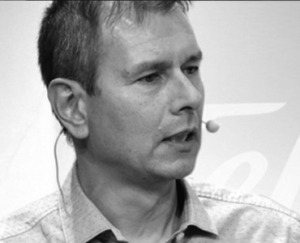
Speaker
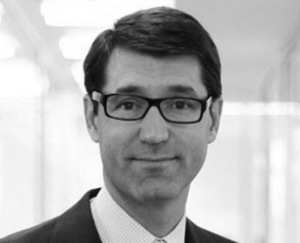
Speaker
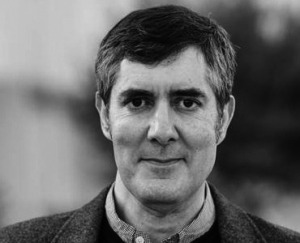
Speaker
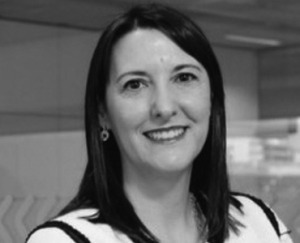
Speaker
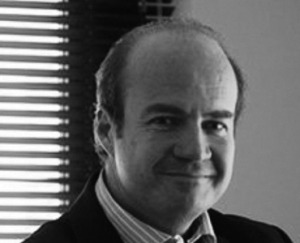
Speaker
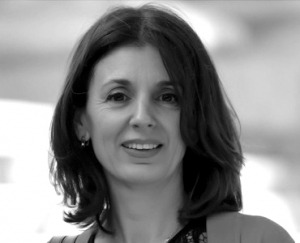
Speaker
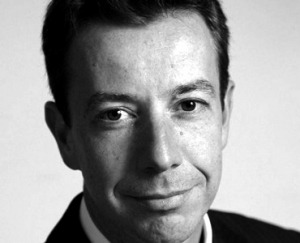
Speaker
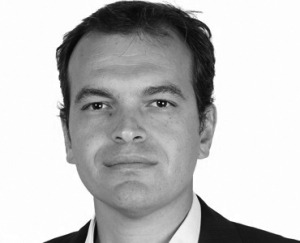
Speaker
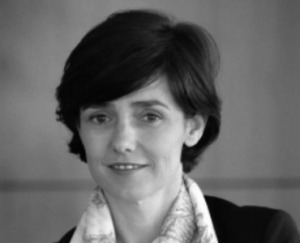
Speaker
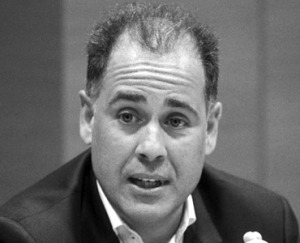
Speaker
| 08:30-09:00 | Welcome and Registration |
| 09:00-10:00 | GENERATING VALUE THROUGH AI
• Introduction: Prof. Joan E. Ricart, Academic Director of the Meeting, IESE Business School DIGITAL TRANSFORMATION IN THE SPANISH DIGITAL ECOSYSTEM Survey IESE-PENTEO on Digital Transformation. • José Luis Pérez Tejada, Director of Analysis Barcelona, PENTEO |
| 10:00-11:15 | UNDERSTANDING AND TEAMING UP WITH THE CONNECTED CLIENT
• Lourdes de la Sota, VX Customer Journey Director, SEAT Moderator: Prof. Javier Zamora, IESE Business School |
| 11:15-11:45 | Coffee-Break |
| 11:45-13:00 | CREATING AND SUSTAINING COMPETITIVE ADVANTAGE
• Richard Benjamins, Data and AI Ambassador, Telefonica Moderator: Pedro Herrera, Founder and General Manager, NovaQuality |
| 13:00-13:15 | Break |
| 13:15-14:30 | BUSINESS MODEL DESIGN
• Bosco Aranguren, Head of Digital Channels, Vodafone Moderator: Prof. Joan E. Ricart, IESE |
| 14:30-14:45 | CLOSING |
| 14:45-15:30 | Networking Lunch |
The fees for the 22 Digital Ecosystem are:
General
IESE Alumni
IESE Members and Partners
Fee includes lunch.
Payment must be made prior to program attendance.
Places are limited and registrations are processed in strict order of receipt.
2015 · The Digital Transformation of Society
2014 · The Digital Age: From Social Evolution to Business Model Transformation
2013 · A whole new world: The revolution of Big Data
2012 · Social transformation and business opportunities in the Information Society
2011 · Breaking the commoditization cycle
2010 · The audiovisual revolution impact
2009 · Looking at the future beyond the current crisis
2008 · New business models in the industry
2007 · The future of the industry at debate
2006 · Looking into the future with critical optimism
2005 · Revolution in the business models: Voice over IP, Digital TV
2003 · New business models
2002 · The way out of the crisis
1999 · Strategies to compete in an unregulated industry
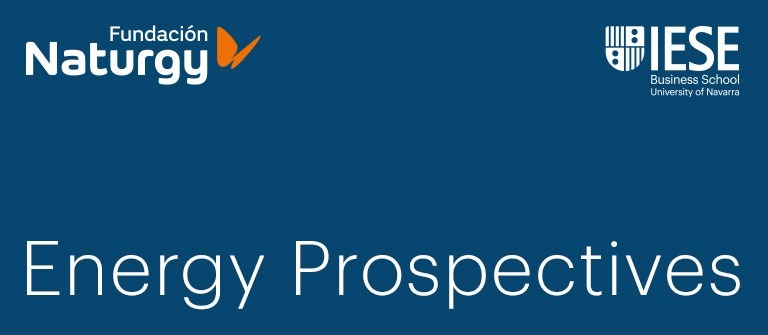
A series of top-level conversations on the economic, technical and scientific conditions anticipated in the future of the energy industry.
Energy Prospectives will bring together world figures recognized for their experience, vision and knowledge of the energy industry so they can share their expertise with business owners, regulators, senior managers and academics.
IESE Madrid
Camino del Cerro del Águila, 3
28023 Madrid
This event is by invitation only
Claudia Escobar
IESE Industry Meetings
tel: +34 93 253 43 36
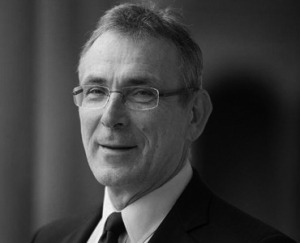
Speaker
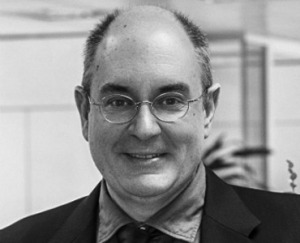
Speaker
| 09:15-09:30 | OPENING
• Prof. José Luis Suárez, Director, IESE Business School Madrid |
| 09:30-10:15 | THE ENERGY TRANSITION IN THE EUROPEAN UNION: A GEOSTRATEGIC OUTLOOK
• Prof. Andris Piebalgs, Former Commissioner for Energy (2004-2009) |
| 10:15-11:00 | THE IMPACT OF THE ENERGY TRANSITION ON MARKETS AND COMPETITION
• Prof. Jorge Padilla, Head, Compass Lexecon Europe |
| 11:00-11:45 | Coloquium Moderator: Juan Luis López Cardenete, IESE Business School |
| 11:45-12:00 | CLOSING
• Rafael Villaseca, President, Naturgy Foundation |
| 12:00-12.30 | Networking cocktail |
| 12:30 | Session end |
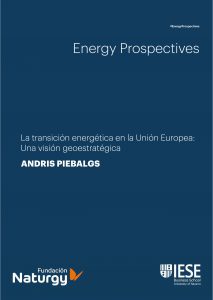
JORGE PADILLA
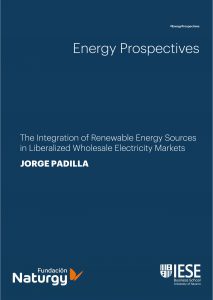
The Naturgy Foundation and IESE have launched Energy Prospectives, a series of top-level conversations on the economic, technical and scientific conditions anticipated in the future of the energy industry.
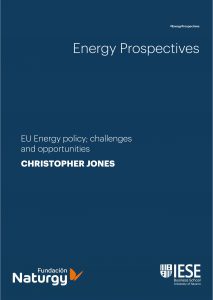
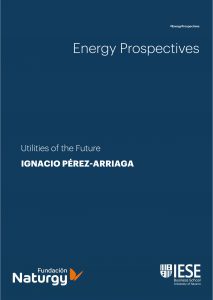
Will EU reach deep decarbonization goals? Energy Prospectives seminar maps out course for cutting emissions in Europe.

CLAUDIO ARANZADI

The Naturgy Foundation and IESE have launched Energy Prospectives, a series of top-level conversations on the economic, technical and scientific conditions anticipated in the future of the energy industry.
June 20, 2019 · Energy Prospectives – EP#2
March 14, 2019 · Energy Prospectives – EP#1
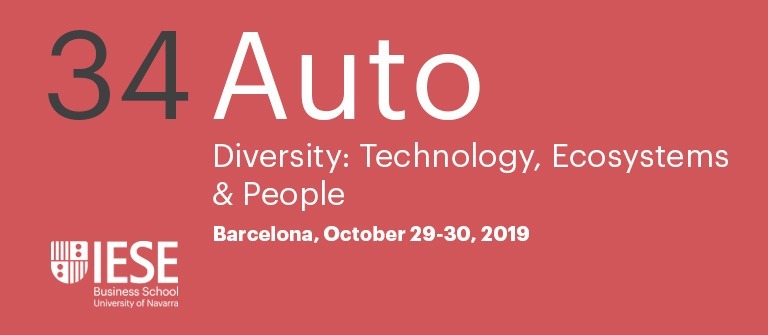
The automotive value chain is going through a transformation on all levels: dealerships have to adapt to new powertrains and the “millennial” customer, OEMs have to modify their business models towards products as a service, and new structural players like utilities and infrastructure providers are entering the ecosystem. In a changing environment like this, flexibility and innovation are key. This also means that companies stand to benefit from increased levels of diversity in their workforce.
At this year’s 34th edition of our annual meeting of the automotive industry, IESE AUTO, we hope to shed some light on these questions while also addressing the “classic” questions relating to the Spanish, European and global markets. In doing so, we will continue our tradition of providing a premier platform for senior executives from the automotive industry, industry experts and leading academics to exchange ideas about the future of the “industry of industries”.
IESE Barcelona
Arnús i Garí, 3-7
08034 Barcelona
IESE Industry Meetings
tel: +34 93 253 43 36

Founding Chair
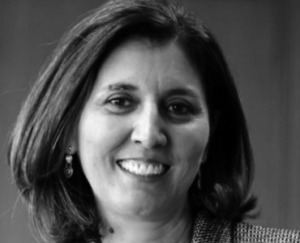
With the expert contribution of:
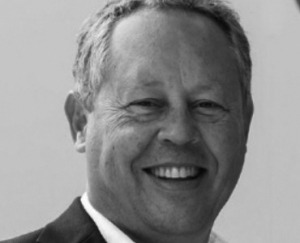
Speaker
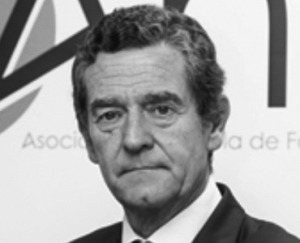
Speaker
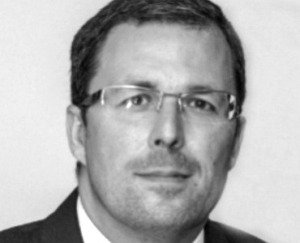
Speaker
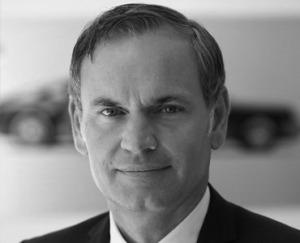
Speaker
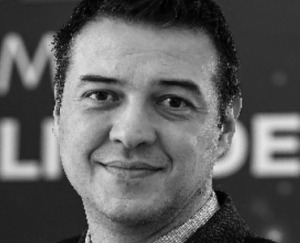
Speaker
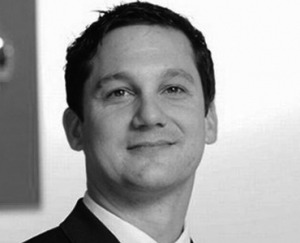
Speaker
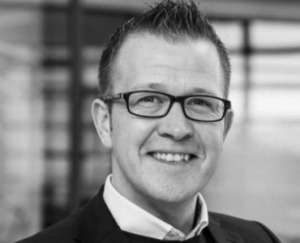
Speaker
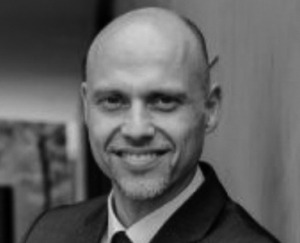
Speaker
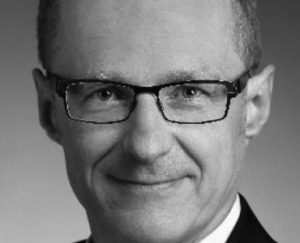
Speaker
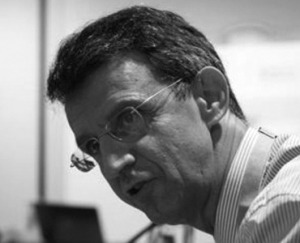
Speaker
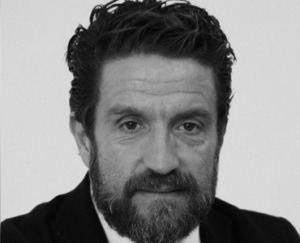
Speaker
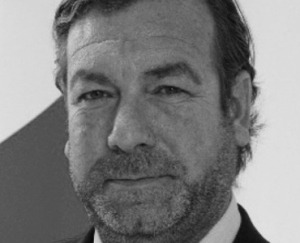
Speaker
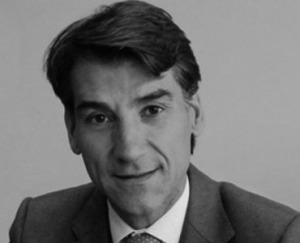
Speaker
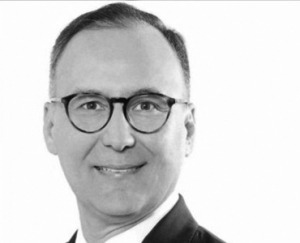
Speaker
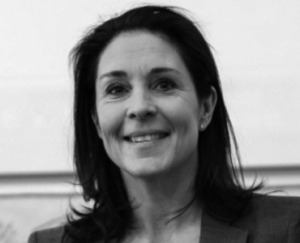
Speaker
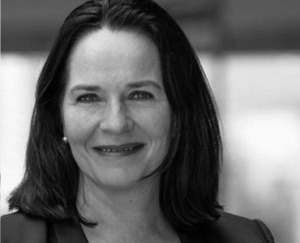
Speaker
Note: (EN) = session in English / (SP) = session in Spanish
| 08:30-09:10 | Welcome and Registration |
| 09:15-10:00 | OPENING AND INTRODUCTION (SP)
• Raül Blanco, General-Secretary for Industry and Small and Medium-Sized Enterprise |
| 10:00-10:30 | INTRODUCTION TO THEME OF MEETING: DIVERSITY: TECHNOLOGY, ECOSYSTEMS AND PEOPLE (EN)
• Prof. Marc Sachon, IESE |
| 10:30-11:00 | Coffee Break |
| 11:00-11:45 | DIVERSITY IN TECHNOLOGY, ECOSYSTEMS AND PEOPLE (EN)
Moderator: Prof. Marc Sachon, IESE • Joachim Langenwalter, Director Automotive SW, NVIDIA |
| 11:45-13:00 | • Dr. Martin Hofmann, Head of Human Resources and HR Strategy, Traton SE • Sofia Vahlne, Head of Labour Affairs, Scania CV AB |
| 13:00-14:15 | Lunch |
| 14:15-14:45 | DIVERSITY: THE SPANISH PERSPECTIVE. ANFAC VISION (SP)
Moderator: Prof. Mike Rosenberg, IESE • Mario Armero, Executive Vice-President, ANFAC |
| 14:45-15:30 | DISTRIBUTION IN AGE OF EV (EN)
Moderator: Prof. Mike Rosenberg, IESE • Gareth Dunsmore, Vice President, Nissan Europe |
| 15:30-15:45 | Break |
| 15:45-16:15 | DIVERSITY: THE SPANISH PERSPECTIVE. SERNAUTO VISION (SP)
Moderator: Prof. Mike Rosenberg, IESE • José Portilla, CEO, SERNAUTO |
| 16:15-16:45 | DIVERSITY: THE SPANISH PERSPECTIVE. FACONAUTO VISION (SP)
Moderator: Prof. Mike Rosenberg, IESE • Gerardo Pérez, President, FACONAUTO |
| 17:00-18:30 | BREAKING BARRIERS: THE FORCES THAT SHAPE THE NEW MOBILITY ECOSYSTEM (SP)
Speaker and Moderator: Begoña Cristeto, Partner, KPMG Spain • Oliver Alonso, Chair and CEO, Domingo Alonso Group (DAG) |
| 18:30-18:45 | CLOSING DAY 1 |
| 18:45 | Networking Cocktail Reception and Tapas |
| 09:00-10:00 | DIVERSITY IN SUPPLY AND PURCHASING (EN)
Moderator: Prof. Marc Sachon, IESE • Dr. Frank Kimmich, Vice President Purchasing and Supplier Network Rolls-Royce, Luxury Class, BMW Group |
| 10:00-10:45 | THE BIG PERSPECTIVE: AUDI IN CHINA (EN)
Moderator: Prof. Marc Sachon, IESE • Gaby Wüst, President, Audi China |
| 10:45-11:00 | Break |
| 11:00-12:00 | EVs, BATTERIES AND SMART GRIDS: A NEW ECOSYSTEM (SP)
Moderator: Prof. Marc Sachon, IESE • Francisco Carranza, Managing Director, Nissan Energy |
| 12:00-13:00 | TRANSFORMATION OF THE AUTOMOTIVE INDUSTRY AND ITS IMPACT ON PORSCHE
Moderator: Prof. Marc Sachon, IESE • Dr. Oliver Blume, CEO, Porsche |
| 13:00-13:15 | CLOSING IESE AUTO 2019 |
The fees for the 34 Auto Industry Meeting are:
General
IESE Alumni
IESE Members and Partners
Fee includes lunch.
Payment must be made prior to program attendance.
Places are limited and registrations are processed in strict order of receipt.
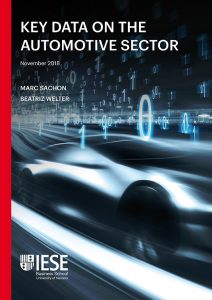
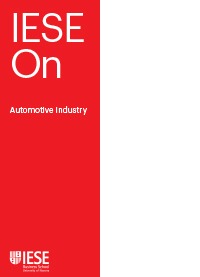
2018 · Back to the future
2017 · The age of turbulence
2016 · The Battle of Automotive
2015 · The Next 30 Years
2014 · Why Automobile
2013 · Two worlds, two speeds?
2012 · Tectonic Shifts
2011 · Megatrends in the Automotive Industry
2010 · Reinventing the Industry
2009 · The Automotive Industry in 2020
2008 · The Automotive Industry in the 2010’s: The Critical Decade?
2007 · Managing Global Uncertainty
2006 · Sustainability of the Automotive Industry in Europe
2005 · Competition and Cooperation
2004 · Back to Basics
2003 · Looking to the Future with Imagination
2002 · Competing Out of Confusion
2001 · Tightening the Screws
2000 · Consequences of Consolidation
1999 · Gods, Tombs, Brands and Experts
1998 · Another Call for Attention
1997 · Entering the 21st Century: The New Trends
1996 · East and West, the Challenge for Europe
1995 · Balance, Present and Future
1994 · How to Face the Recovery?
1993 · Where are we Going?
1992 · The End/Beginning of the Countdown
1991 · Building Up from the Crisis
1990 · Learning Organizations, Change and Innovation. Routines of the 90’s
1989 · A Call for Attention
1988 · Towards 1992: Single Market Consolidation
1987 · The Value-Added Chain in the Automotive Sector
1986 · The Future of the Automotive Sector
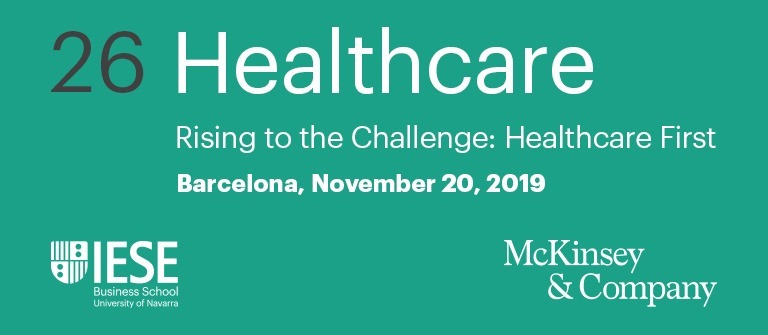
Health consumerism, population ageing and the tsunami of chronic disease are re-shaping the way we think of, and deliver care. At the same time, the healthcare market is becoming more complex, with increased regulation and public budgets not always keeping up with demand and price pressures. Moreover, digital transformation and new technologies have the potential to disrupt the health sector, although the pace of change varies.
What is the real potential of digital health to improve outcomes, quality and access, and increase sustainability? Who is winning in healthcare through digital disruption?
To make sure that all these changes take us in the right direction, there is one guiding lemma: Healthcare first.
Under the title “Rising to the Challenge: Healthcare First”, IESE Healthcare 2019 will reflect on how the different agents in healthcare can work together to continue building a healthier society, at a time of enormous change in the sector. We invite you to help us define which types of partnerships will emerge, that will allow us to continue innovating. How do we build a new business model, to help us deliver value-based care? How can digital health innovation help us transform patient experience? What fundamentals should we start building today, in order to make our health systems more sustainable?
IESE Barcelona
Arnús i Garí, 3-7
08034 Barcelona
IESE Industry Meetings
tel: +34 93 253 43 36
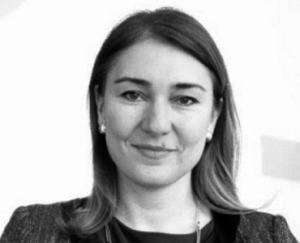
With the expert contribution of
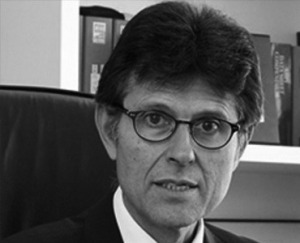
Speaker
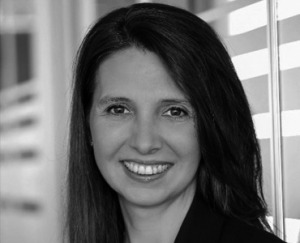
Speaker
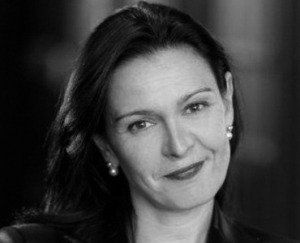
Speaker
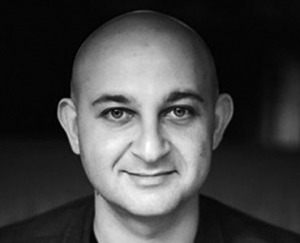
Speaker
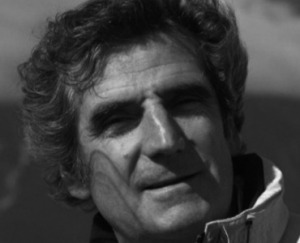
Speaker

Speaker
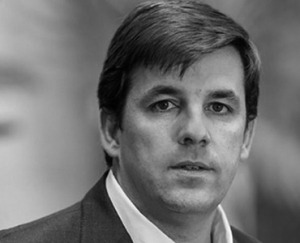
Speaker
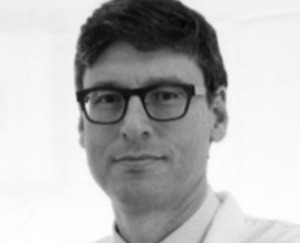
Speaker
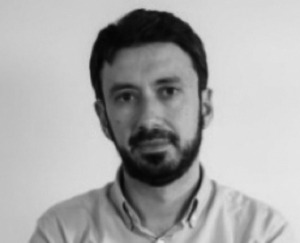
Speaker
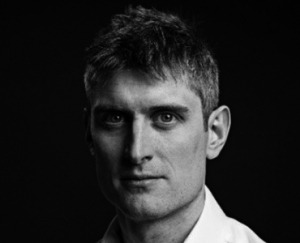
Speaker
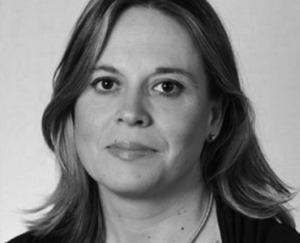
Speaker

Speaker
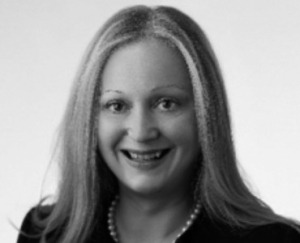
Speaker
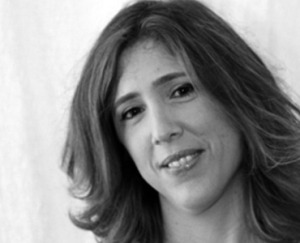
Speaker
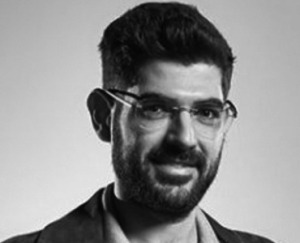
Speaker
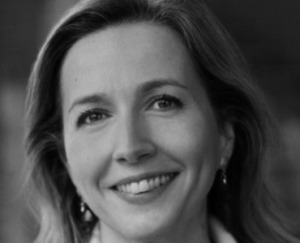
Speaker
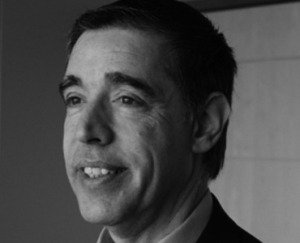
Speaker
| 08:30-09:00 | Welcome and Registration |
| 09:00-09:30 | OPENING
• Humberto Arnés, Managing Director, Farmaindustria |
| 09:30-10:00 | GLOBAL ECONOMIC OUTLOOK. IMPLICATIONS FOR HEALTHCARE
• Prof. Núria Mas, IESE Business School |
| 10:00-11:15 | PANEL I: TECHNOLOGY AND BIG DATA IN HEALTHCARE
To make sure that our healthcare systems can continue delivering today’s high standards of care in the future, sustainability is key. Digitalization, big data and personalized medicine are transforming healthcare. How should we prepare for the challenge? How can we maximize their impact to achieve the maximum value for patients? What are the implications for corporate strategy? • Elena Bonfiglioli, Managing Director Health and Life Science (EMEA), Microsoft Moderator: Prof. Núria Mas, IESE Business School |
| 11:15-11:45 | Coffee Break |
| 11:45-12:30 | KEYNOTE: AI IN HEALTH. MYTH OR REALITY?
The promises of Artificial Intelligence and big data in healthcare are many: better and more effective treatments, efficiency gains, improved diagnostic, etc. How many of these promises are a reality today? Which are likely in the next 5 years? What do they imply for healthcare? • Dr. Michal Rosen-Zvi, Director, Healthcare Informatics, IBM Research Moderator: Dr. Angela Spatharou, Partner, McKinsey & Company |
| 12:30-13:45 | PANEL II: SUSTAINABILITY
With the changing patient needs with the increase in chronic conditions, the offered by new technologies and treatments, some of which imply significant costs for the system, access and sustainability are becoming some of the key challenges for our healthcare systems. How can patient empowerment help? What is the role for public-private partnerships? • Dr. Josep Mª Campistol, General Manager, Hospital Clínic de Barcelona Moderator: Prof. Núria Mas, IESE Business School |
| 13:45-15:00 | Lunch |
| 15:00-16:00 | PANEL III: THE INNOVATION CHALLENGE
We’ve seen an explosion in healthcare innovations coming both from traditional health providers and non-traditional ones. However, some of this new technology comes at high prices, at least in the short-run. How can we align incentives to increase access to new technologies? • Fina Lladós, General Manager Iberia, Amgen Moderator: Prof. Núria Mas, IESE Business School |
| 16:00-16:20 | Break |
| 16:20-16:50 | KEYNOTE: GLOBAL HEALTH AND POPULATION
• Dr. Irina A. Nikolic, Global Health Expert, The World Bank Moderator: Prof. Pedro Nueno, IESE Business School |
| 16:50-17:50 | PANEL IV: PATIENT OF THE FUTURE. HOW WILL PATIENT CARE LOOK LIKE IN THE NEXT 10 YEARS?
Patient of the Future: how can we use technology, AI and data to empower the patient of the future? How can they help to make the patient take ownership and improve outcomes and reduce costs in the process? What needs to change for this to be possible? What is the role for the industry? And the medical profession? • Eugene Borukhovich, Global Head, G4A Digital Health, Bayer, Germany Moderator: Dr. Angela Spatharou, Partner, McKinsey & Company |
| 17:50-18:20 | FINAL THOUGHTS
• Dr. Angela Spatharou, Partner, McKinsey & Company |
| 18:20 | CLOSING
• Mª Luz López-Carrasco, President, Fenin |
The fees for the 26 Healthcare Industry Meeting are:
General
IESE Alumni
IESE Members and Partners
Fee includes lunch.
Payment must be made prior to program attendance.
Places are limited and registrations are processed in strict order of receipt.
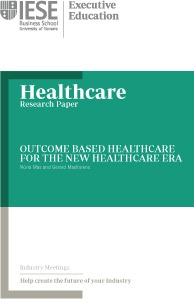
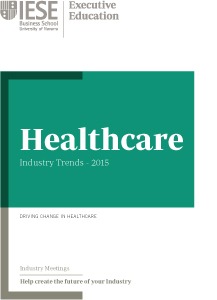
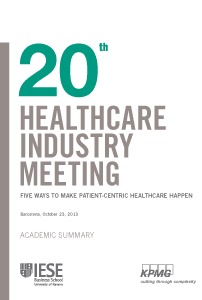
2018 · Working for a healthy society
2017 · Building a Sustainable Healthcare Model
2016 · Towards Value-Based Healthcare
2015 · Innovation for the New Healthcare Era
2014 · Propelling Change
2013 · Making Patient-Centric Care Happen
2012 · Value Creation and Value Sharing
2011 · Toward a Change of Model
2010 · The Healthcare Industry in 2020
2009 · Toward a New Model of Industry (Pharma) / Recognizing Value (Healthcare)
2008 · Betting on the Sector (Pharma) / Innovating With Responsibility (Healthcare)
2007 · The Global Opportunity
2006 · Contributing More (Pharma) / The Value of Technology (Healthcare)
2005 · Healing Under Pressure
2004 · Rethinking Health
2003 · Health Technologies and the Management of Health Budgets
2002 · Key Variables for Consideration
2001 · Whither the Spanish Health System?
2000 · The Market for Medical Devices in the European Union
1999 · New Millennium, New Challenges
1998 · Health Reform in Practice: New Ways to Buy and Sell
1997 · Economic Limits of Health Since 1998
1996 · Spanish Health: Reality, Change and Adjustment
1995 · Present and Future
1994 · Building From the Crisis
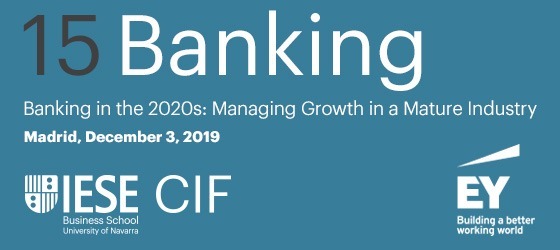
The deep-seated changes of recent years have given banking the features of a mature industry faced with the declining performance of its traditional business.
Highly regulated and strictly supervised, the banking industry has witnessed a number of major challenges, often associated with technological change, and each one has been added to the industry’s traditional challenge of fierce internal competition.
Banks’ long-standing competition with capital markets has become more intense, largely because of the digital revolution. Fintechs have intensified their activity while major tech platforms have started offering financial services and even announced the issue of new cryptocurrencies as a standard payment method. This approach presents an emerging threat and many feel that some central banks could potentially adopt it.
It is therefore clear that the industry horizon is not free of obstacles or questions, but it is also true that the banking industry, especially the Spanish industry, has demonstrated a notable ability to weather the strong winds of change at different times in the past.
With this balance of concern and hope, the 15 Banking Industry Meeting aims to delve deep into the prospects of this mature industry.
IESE Madrid
Camino del Cerro del Águila, 3
28023 Madrid
IESE Industry Meetings
tel: +34 93 253 64 68
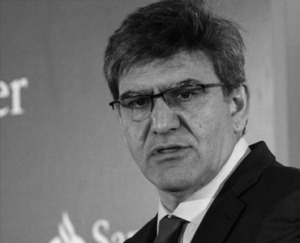
Speaker
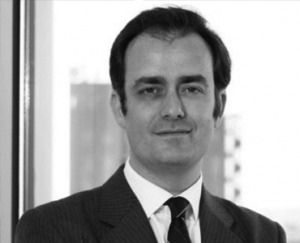
Speaker
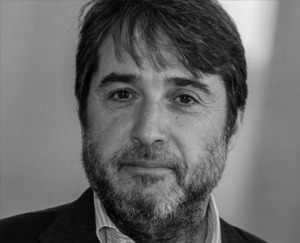
Speaker
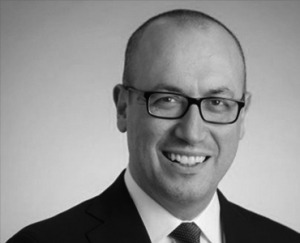
Speaker
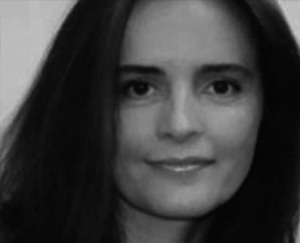
Speaker
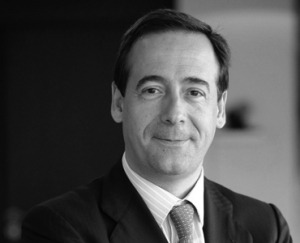
Speaker
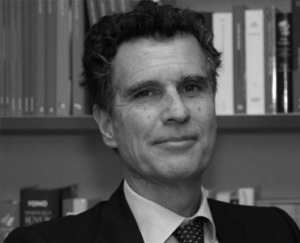
Speaker
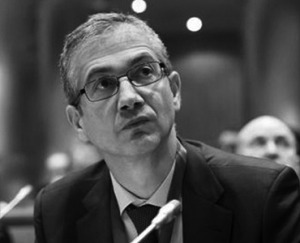
Speaker
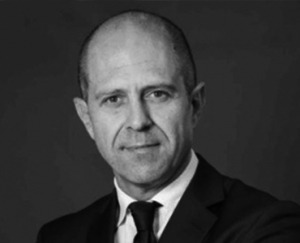
Speaker
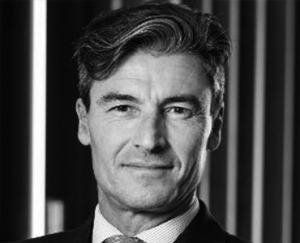
Speaker
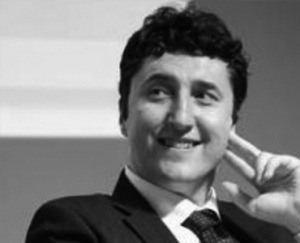
Speaker
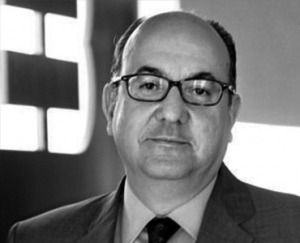
Speaker
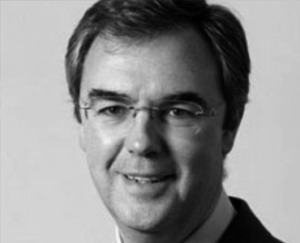
Speaker
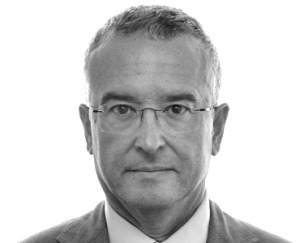
Speaker
| 08:30-09:00 | Welcome and Registration |
| 09:00-09:15 | INTRODUCTION
• Prof. Juan José Toribio, President, IESE-CIF (Center for International Finance) |
| 09:15-10:00 | OPENING SESSION
• Pablo Hernández de Cos, Governor, Bank of Spain |
| 10:00-10:45 | POST-DIGITALIZATION: PROMOTING NEW SERVICES
• Onur Genç, CEO, BBVA Moderator: Arturo Derteano, Advisory FSO Leader Spain, EY |
| 10:45-11:45 | 2020S: NEW CHALLENGES IN THE FINANCIAL SECTOR
• María José Gómez Yubero, Head of Resolution and Financial Stability Issues, CNMV Moderator: Prof. Germán López Espinosa, University of Navarra |
| 11:45-12:15 | Coffee Break |
| 12:15-13:00 | RISKS AND OPPORTUNITIES IN THE 2020S
• José Sevilla, CEO, Bankia Moderator: Francisco Velasco, Managing Partner, Financial Services, EY |
| 13:00-13:45 | BANKING AND THE 2030 AGENDA
• José María Roldán, Chairman & CEO, Spanish Banking Association (AEB) Moderator: Prof. José Luis Suárez, IESE Business School |
| 13:45-14:30 | NEW BANKING BUSINESS MODELS
• Jaime Guardiola, CEO, Banco Sabadell Moderator: José Carlos Hernández, FSO Spain Assurance Leader, EY Spain |
| 14:45-16:00 | Lunch |
| 16:15-17:00 | FINTECHS AND BIGTECHS: PARTNERS OR RIVALS?
• Gonzalo Gortázar, CEO, CaixaBank Moderators: Prof. Mireia Giné and Prof. Jorge Soley, IESE Business School |
| 17:00-17:45 | BANKING IN THE 2020S
• José Antonio Álvarez, CEO, Santander Group Moderator: Prof. Juan José Toribio, IESE Business School |
| 17:45-18:00 | CLOSING |
The fees for the 15 Banking Industry Meeting are:
General
IESE Alumni
IESE Members and Partners
Fee includes lunch.
Payment must be made prior to program attendance.
Places are limited and registrations are processed in strict order of receipt.

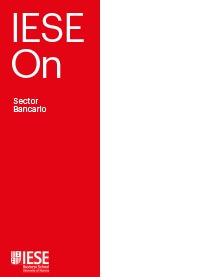
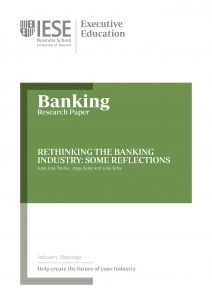
2018 · Reinvent Banking or Improve Bank Management?
2017 · Competitive Banking in a New Society
2016 · Banking in the future
2015 · Banking in Today’s Competitive Environment
2014 · Bank’s Role in Recovery
2013 · Banking: Beyond the Crisis
2012 · Banking: Opportunities after the Crisis
2011· Designing the New Banking Sector
2010 · Building the Future
2008 · The Global Opportunity
2006 · Innovation and Strategies for the Growth of the Banking Sector in Europe
2004 · (September) Banking in Europe: Building the Future
2004 · (April) Technology and Geographic Space: Strategic Keys for the Banking System


